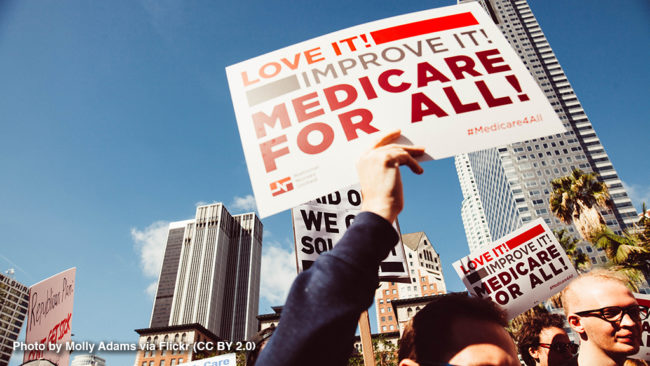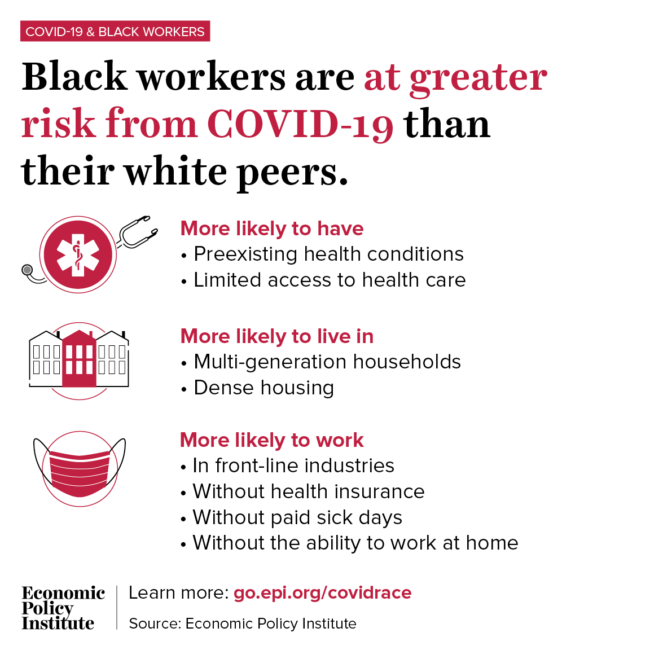Top 10 EPI reports of 2020
Staying safe. Educating our children. Having a say in workplace conditions. Fighting for fair wages when systemic racism, consolidated wealth, and corporate power thwart opportunity.
These concerns were top of mind for our readers in 2020, according to our compilation of EPI’s most-read reports.
The report in first place is the one that outlines where a tsunami of anti-worker actions have come from. Can you guess the source?
Here’s a countdown of our most popular reports:
Health insurance and the COVID-19 shock
What we know so far about health insurance losses and what it means for policy

Farm employment, safety issues, and the H-2A guestworker program

Why unions are good for workers—especially in a crisis like COVID-19
Twelve policies that would boost worker rights, safety, and wages

CEO compensation surged 14% in 2019 to $21.3 million
CEOs now earn 320 times as much as a typical worker

Fundamental health reform like ‘Medicare for All’ would help the labor market
Job loss claims are misleading, and substantial boosts to job quality are often overlooked

The disparate racial impact of the virus is deeply rooted in historic and ongoing social and economic injustices

We can reshore manufacturing jobs, but Trump hasn’t done it
Trade rebalancing, infrastructure, and climate investments could create 17 million good jobs and rebuild the American economy

H-1B visas and prevailing wage levels
A majority of H-1B employers—including major U.S. tech firms—use the program to pay migrant workers well below market wages

COVID-19 and student performance, equity, and U.S. education policy
Lessons from pre-pandemic research to inform relief, recovery, and rebuilding

50 reasons the Trump administration is bad for workers
President Trump has said he would “protect” and “fight for” workers. Instead, his administration has systematically done the opposite.

Enjoyed this post?
Sign up for EPI's newsletter so you never miss our research and insights on ways to make the economy work better for everyone.